helping you to navigate SciEng information
February 25th, 2009 by Eugene Barsky | No Comments »
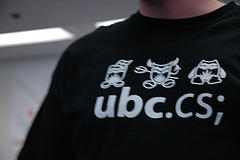
The most recent Sci-Bites newsletter from Thomson Reuters reports that UBC CS department has the Highest Impact in Computer Science in Canada, ranked by average citations per paper, among Canadian universities that published at least 50 papers in Thomson Reuters-indexed journals of computer science & engineering between 2003 and 2007.
http://sciencewatch.com/dr/sci/09/feb22-09_2/
Congrats to our CS faculty and students!
** Photo by gillicious
Posted in General Science, Main, News, Science - undegraduate classes, Statistics, Uncategorized | No Comments »
February 19th, 2009 by Eugene Barsky | No Comments »
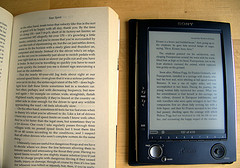
Our new article – “Comparing Safari Tech Books Online and Books24x7 E-book Collections: A Case Study from the University of British Columbia Library” has just been published this week in the Issues in Science and Technology Librarianship.
It is open access and is available for everyone.
Abstract:
Most academic libraries are seeking to provide electronic access to the very dynamic and changing field of technology related material. Safari Tech Books Online and Books24x7 are the major e-book collections in this area. We compared the Safari Tech Books Online and Books24x7 e-book packages as to their usefulness for the University of British Columbia Library, second largest academic library in Canada. In our sample, we found that Books24x7 had more titles to offer (25% more); the overlap between the collections was relatively small (13-16%) and publishers varied considerably; and although there were no major differences in the “usefulness” measures of the titles in the two packages (Amazon.com ratings, WorldCat holdings and Reviews.com reviews were quite similar for both packages), O’Reilly titles, available only through Safari Tech Books Online, were held by a slightly higher number of libraries worldwide. We conclude that in order to have comprehensive coverage of this constantly changing area of knowledge, a large research academic library needs to subscribe to both collections. If subscribing to both collections is not an option, we recommend selecting a package based on the pricing that the library can negotiate with ProQuest, the vendor of both products, since the collections are complimentary in their nature.
Please feel free to ask us any questions or follow-up with this area of ebooks evaluation.
** photo by Adrian
Posted in General Science, Main, Mathematics, News, Science - undegraduate classes | No Comments »
February 11th, 2009 by Eugene Barsky | No Comments »
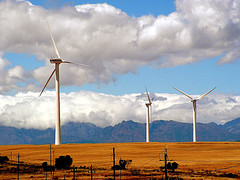
A short article from the New Scientist discusses the Financial Times Energy Conference in London last week. It is a pretty interesting short read.
To see UBC researchers work in this area, you could go to Compendex database (a primary engineering database) – http://toby.library.ubc.ca/resources/infopage.cfm?id=715
and type “sustainable energy” as a topic search and UNIVERSITY OF BRITISH COLUMBIA as “author affiliation”
** Photo by Lollie-Pop
Posted in Atmospheric Science, Chemical and Biological Engineering, Chemistry, Earth and Ocean Sciences, General Science, Geography, Materials Engineering, News, Physics, Science - undegraduate classes, Wood Sciences | No Comments »
February 4th, 2009 by Eugene Barsky | No Comments »

This is a quick post to remind you about various standards we have in the SciEng library:
* ASTM up to 2006
* CSA and ANSI standards up to 1995 (How to get those?)
* IEEE Standards: The IEEE Electronic Library provides access to over 1,000 current, revised and superceded standards in the field of electrical and computer engineering. You must be a UBC faculty, student or staff to access these resources. Print standards can be found in the UBC Library catalogue, though coverage varies.
* ISO: We own a number of ISO standards that are listed individually in our library catalogue, mostly from the early 1990s. Try typing ISO and standard? in catalogue search box.
* Open Access Standards (Free):
a.International Telecommunications Union (ITU-T)
b. International Organization for Standardization (ISO) and International Electrotechnical Commission (IEC) Standards. The Standards Council of Canada will grant a license for use of ISO and IEC international standards by recognized Canadian educational institutions in a credit course. Please contact us to learn more about this option.
Please do not hesitate to contact Kevin Lindstrom or Eugene Barsky if you require any additional info!
** Photo by Sifter
Posted in Atmospheric Science, Chemical and Biological Engineering, Chemistry, Civil Engineering, Earth and Ocean Sciences, General Science, Geography, Main, Materials Engineering, Mathematics, Mechanical Engineering, Physics, Science - undegraduate classes, Statistics, Wood Sciences | No Comments »
January 27th, 2009 by Eugene Barsky | No Comments »
This well-edited little video does a good job of tracing the rise of the internet from early networking efforts to birth of the TCP/IP protocol.
History of the Internet from PICOL on Vimeo.
UBC Library has a number of books on this topic as well. Try searching for Internet AND history in our library catalogue.
Posted in Main, Science - undegraduate classes | No Comments »
January 20th, 2009 by Eugene Barsky | No Comments »
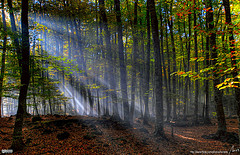
From the Food and Agriculture Organization of United Nations (FAO) website:
http://www.fao.org/forestry/52980/en/
This 17-minute video presentation, produced by FAO and the Forestry Commission of the United Kingdom, shows how much forests can contribute to the mitigation of climate change, stressing the importance of reversing forest loss.
Forests store more carbon than all the world’s remaining oil stocks. Continuing deforestation and forest degradation account for almost one-fifth of the world’s greenhouse gas emissions – more than the entire global transport sector. The presentation explains how society can combat climate change by conserving and managing existing forests, by tackling causes of deforestation and by planting new forests. It stresses the use of wood as a renewable energy source and as a raw material, pointing out that wood products store carbon for their entire lifetime, until they decay or are burned. A section on adaptation notes how the world’s changing climate will affect the health and composition of forests and stresses the importance of adapting and planning ahead for the changes.
** Photo by MorBCN
Posted in Earth and Ocean Sciences, Main, Science - undegraduate classes, Wood Sciences | No Comments »
January 15th, 2009 by Eugene Barsky | No Comments »
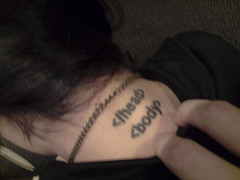
The US National Security Agency has helped put together a list of the world’s most dangerous coding mistakes.
Experts from more than 30 US and international cyber security organizations jointly released the consensus list of the 25 most dangerous programming errors that lead to security bugs and that enable cyber espionage and cyber crime. Shockingly, most of these errors are not well understood by programmers; their avoidance is not widely taught by computer science programs; and their presence is frequently not tested by organizations developing software for sale.
BBC news article lists the mistakes here – http://news.bbc.co.uk/2/hi/technology/7824939.stm
** Photo by Marco Gomes
Posted in Amusing stuff, Main, Mathematics, News, Science - undegraduate classes | No Comments »
January 5th, 2009 by Eugene Barsky | No Comments »
The 2008 edition of this ever popular video is out for the masses.
I enjoyed to view it for the first time a couple of years ago and I have to admit that the video did not change much.
However, it might still surprise and entertain you:
Posted in Amusing stuff, Main | No Comments »
December 24th, 2008 by Eugene Barsky | No Comments »
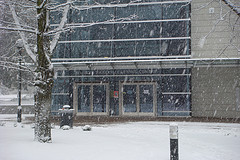
We would like to wish you happy holidays! We are looking forward to work with many of you next year!
Enjoy the snow 🙂
** Photo by velkr0
Posted in Atmospheric Science, Chemical and Biological Engineering, Chemistry, Civil Engineering, Earth and Ocean Sciences, General Science, Geography, Main, Materials Engineering, Mathematics, Mechanical Engineering, News, Physics, Science - undegraduate classes, Statistics, Wood Sciences | No Comments »
December 18th, 2008 by Eugene Barsky | No Comments »

The new Pew Report on Future of Internet III was released a few days ago.
A survey of experts shows they expect major tech advances as the phone becomes a primary device for online access, voice-recognition improves, and the structure of the Internet itself improves. They disagree about whether this will lead to more social tolerance, more forgiving human relations, or better home lives.
http://pewinternet.org/pdfs/PIP_FutureInternet3.pdf
Major findings from the report:
• The mobile device will be the primary connection tool to the Internet for most people in the world in 2020.
• The transparency of people and organizations will increase, but that will not necessarily yield more personal integrity, social tolerance, or forgiveness.
• Voice recognition and touch user-interfaces with the Internet will be more prevalent and accepted by 2020.
• Those working to enforce intellectual property law and copyright protection will remain in a continuing “arms race,” with the “crackers” who will find ways to copy and share content without payment.
• The divisions between personal time and work time and between physical and virtual reality will be further erased for everyone who’s connected, and the results will be mixed in terms of social relations.
• “Next-generation” engineering of the network to improve the current Internet architecture is more likely than an effort to rebuild the architecture from scratch.
** Photo by Myxi
Posted in General Science, Main, News, Science - undegraduate classes | No Comments »
« Newer Posts - Older Posts »








